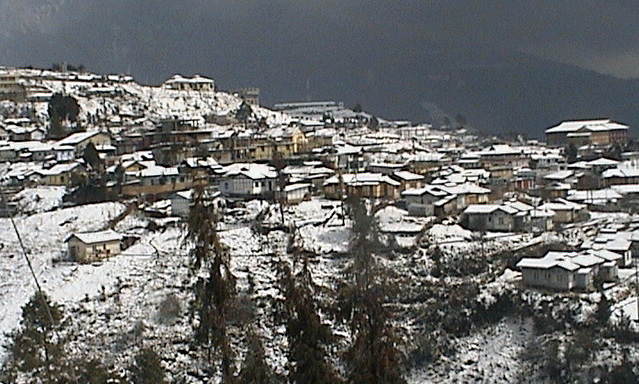In a move that is certain to be equally controversial for economic as political reasons, the Indian government has announced that it has begun planning a 1,800km road along its mountainous north-eastern border with China.
Whatever we make on our territory should not be a concern of China– A senior official from India’s home ministry’s border management department
The road will pass through the Indian province of Arunachal Pradesh. Kiren Rijiju, the union minister for home affairs, who is also an MP for the region, told reporters on Tuesday: “The construction of the road will be a huge challenge considering the rough and hostile terrain, mostly snow-fed, through which it would pass, and will be the biggest single infrastructure project in the history of India with an estimated cost of more than $6.5bn.”
Rijiju added that the purpose of the road was economic. He said: “The road will curb large-scale migration of people from the border areas. We will arrange for basic amenities to make them comfortable.”
Commentators in the Indian press have, however, assumed that the principal motive for the project is to counter China’s growing transport network in the region, which could allow it to manoeuvre troops more easily in the event of a future conflict, and to buttress India’s claim to the whole of Arunachal Pradesh.
This was also China’s interpretation: a foreign ministry spokesman expressed concern over India’s road building plans, and asked New Delhi not to complicate the situation further. He said: “There is a dispute about the eastern part of the China-India border. Before final settlement is reached we hope that India will not take any action that may further complicate the situation, so as to preserve the current situation of peace and stability in the border area and create conditions for the final settlement of the border issue.”
Rajnath Singh, the Union Home Minister, dismissed China’s concerns. He said: “Today, no one can give warning to India. We are a very powerful country.”
Other Indian officials have reacted in a similar way. One senior official in the home ministry’s border management department said: “China has already spread its network of roads and rail network near the border. Whatever we make on our territory should not be a concern of China.”

Snowfall in Tawang Town, Arunachal Pradesh
The border is marked by the McMahon Line, which was agreed by the Simla agreement between Britain and Tibet in 1914. It is accepted by India but disputed by China, which claims 65,000 square kilometres on the Indian side of the line as part of the Tibetan Autonomous Region. The border dispute led to a month-long war between the two sides in 1961, during which the People’s Liberation Army overran the Indian armed forces but then returned to its side of the McMahon line.Â
Tension has simmered ever since. In September this year there was a stand-off between Indian and Chinese troops that overshadowed a state visit by Chinese President Xi Jinping; after that visit, Xi reportedly asked his generals to be prepared to “win regional wars”, and this is assumed to have been the trigger for the highway plan.
The Union Home Ministry has asked Ministry of Road Transport and Highways to prepare a detailed report about the development.






